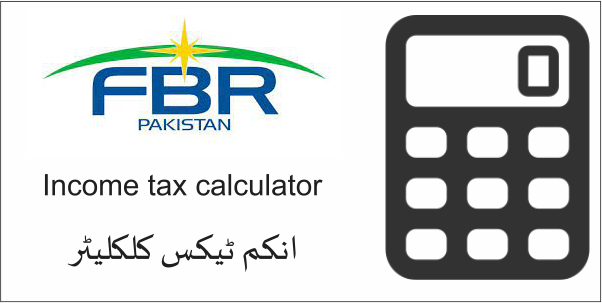In a significant move aimed at meeting International Monetary Fund (IMF) conditions and securing additional bailout funds, the National Assembly recently approved an amended Finance Bill for the year 2023.
The revised bill, presented by Finance Minister Ishaq Dar, introduces crucial changes to the country’s budget, including the implementation of new taxes and expenditure cuts.
This article aims to provide a comprehensive overview of the amended Finance Bill, highlighting its key features, the implications of the revised budget, and the impact on different income brackets.
Meeting IMF Conditions for Additional Bailout Funds
The IMF expressed dissatisfaction with the country’s initial budget, emphasizing the missed opportunity to broaden the tax base in a more progressive manner. To address these concerns, the Finance Bill 2023 was revised with the aim of meeting the IMF conditions and unlocking additional bailout funds. By doing so, the government hopes to stabilize the economy and ensure sustainable growth.
Key Changes and Tax Reforms
The revised Finance Bill introduces several significant changes and tax reforms that impact different income brackets within the country. Let’s delve into the details of the revised income tax slabs for the year 2023:
1. Zero Tax on Income Up to Rs600,000
Individuals with taxable income not exceeding Rs600,000 will be exempted from income tax. This move aims to provide relief to low-income earners and reduce their financial burden.
2. Tax Rate of 2.5% for Income Between Rs600,000 and Rs1,200,000
For individuals whose taxable income falls between Rs600,000 and Rs1,200,000, a tax rate of 2.5% will be applied to the amount exceeding Rs600,000. This progressive taxation structure ensures that those with higher incomes contribute their fair share towards the country’s development.
3. Unchanged Tax Rate for Salaried Individuals: Rs1,200,000 to Rs2,400,000
Salaried individuals with taxable income exceeding Rs1,200,000 but not exceeding Rs2,400,000 will experience no changes in their tax rates. The existing tax rate of Rs15,000 plus 12.5% of the amount exceeding Rs1,200,000 will remain applicable. This measure aims to provide stability for the salaried class while ensuring a fair distribution of tax burdens.
4. Tax Rate of Rs165,000 plus 22.5% for Income Between Rs2,400,000 and Rs3,600,000
Individuals with taxable income ranging from Rs2,400,000 to Rs3,600,000 will face a tax rate of Rs165,000 plus 22.5% of the amount exceeding Rs2,400,000. This tax bracket targets higher-income individuals and promotes progressive taxation, contributing to a more equitable system.
5. Tax Rate of Rs435,000 plus 27.5% for Income Between Rs3,600,000 and Rs6,000,000
For those with taxable income between Rs3,600,000 and Rs6,000,000, the tax rate will be Rs435,000 plus 27.5% of the amount exceeding Rs3,600,000. This tax structure ensures that individuals with higher incomes bear a proportionate tax burden, supporting the government’s goal of expanding the tax base.
6. Tax Rate of Rs1,095,000 plus 35% for Income Exceeding Rs6,000,000
Individuals with taxable income exceeding Rs6,000,000 will face the highest tax rate of Rs1,095,000 plus 35% of the amount exceeding Rs6,000,000. This progressive taxation measure aims to address income inequality and generate additional revenue to fund critical government initiatives.
FBR income tax calculator 2023-24
The FBR Income Tax Calculator for the year 2023-24 is a valuable tool that enables individuals to estimate their tax liability accurately. This user-friendly calculator takes into account the revised income tax slabs and progressive taxation measures introduced in the Finance Bill 2023.
By inputting their taxable income, individuals can quickly calculate the amount they owe based on the updated rates. This helps taxpayers plan their finances effectively and ensures compliance with the law.
The FBR Income Tax Calculator provides a convenient and reliable method to assess tax obligations, making the tax filing process more transparent and efficient for individuals in the 2023-24 financial year.
Income Tax Calculator
Implications and Benefits of the Revised Budget
The approval of the amended Finance Bill 2023 brings forth several implications and benefits for the country's economy:
- Meeting IMF Conditions: By aligning the budget with IMF conditions, the government improves its chances of securing additional bailout funds, which will help stabilize the economy and boost investor confidence.
- Broader Tax Base: The revised bill aims to broaden the tax base by introducing new taxation measures and adjusting tax rates for higher-income brackets. This will enhance revenue generation and reduce dependence on loans and external funding.
- Progressive Taxation: The new tax slabs ensure a more progressive taxation system, where individuals with higher incomes contribute a higher proportion of their earnings. This promotes economic equality and social justice.
- Investment and Economic Growth: The revised budget facilitates an environment conducive to investment and economic growth. Stable finances, backed by tax reforms, attract domestic and foreign investors, fostering job creation and overall development.
- Government Expenditure Control: Expenditure cuts, implemented as part of the amended Finance Bill, help the government maintain fiscal discipline and control budget deficits. This contributes to long-term economic stability and sustainability.
In conclusion, the approval of the amended Finance Bill 2023 signifies the government's commitment to meet IMF conditions, broadening the tax base, and fostering economic growth. The introduction of new tax measures and revised income tax slabs ensures a fair distribution of tax burdens while promoting progressive taxation.
The implications and benefits of the revised budget are extensive, including stabilizing the economy, attracting investments, and controlling government expenditures. By taking these steps, the government aims to create a strong foundation for sustainable development and prosperity in the country.


